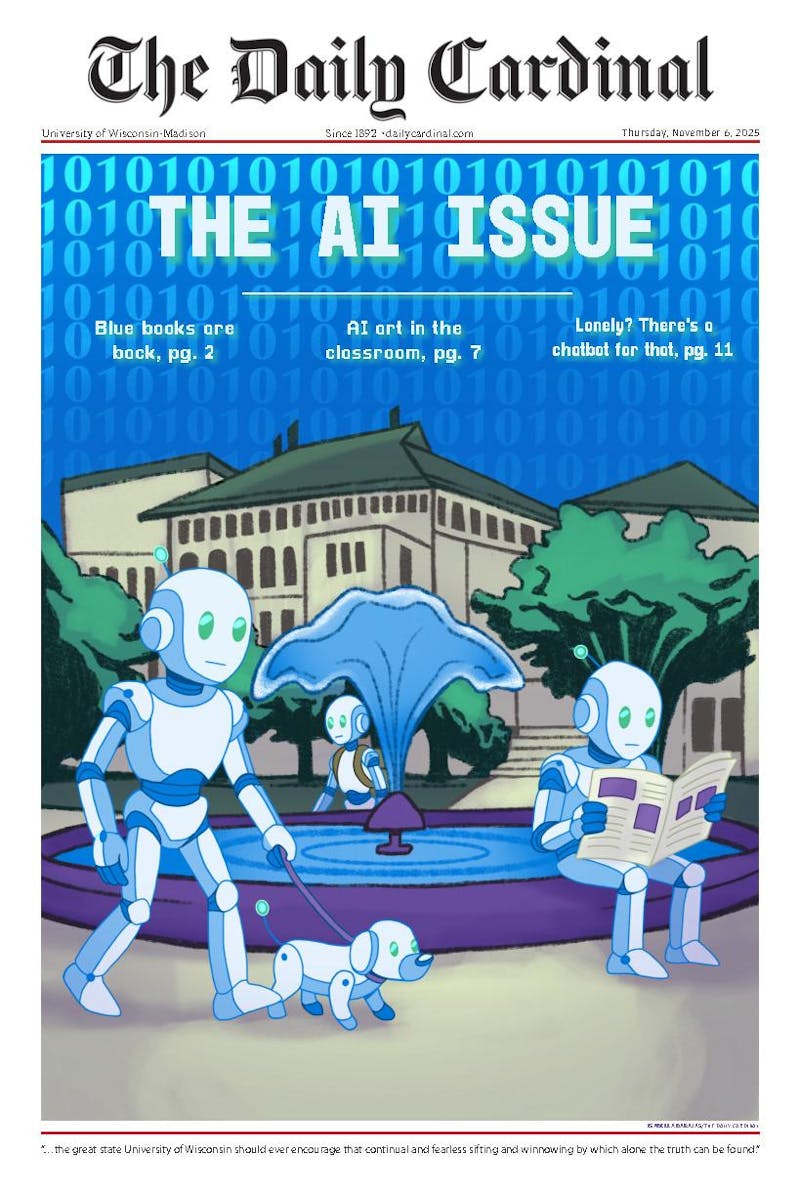Bill Murray sits silently in a darkened room. A vacant stare remains on his face as he contemplates life-his successes, his failures and his romances. This scene could describe \Lost in Translation,"" or maybe parts of ""Rushmore,"" but it actually comes from his latest, ""Broken Flowers.""
Writer-director Jim Jarmusch's latest film tells the story of Murray's Don Johnston, an aging Don Juan millionaire who finds out he fathered a child nearly 20 years ago. Johnston learns this fact via an anonymous letter meaning the mother could be a number of former flames. It could be the bland real estate agent Dora, or possibly the pet communicator Carmen, as well as several others. Johnston sets out on a cross-country tour to find the woman who raised his child and possibly discover himself along the way.
Jarmusch makes ""Broken Flowers"" work by infusing it with a slow, deliberate pace. He allows his actors to act-and allows long takes featuring drawn-out silences. Johnston is a relatively sane character surrounded by a world of craziness. Jarmusch does not force Murray into the insanity; he lets him be the straight man, which allows for some hilarious scenes.
A directing flourish of Jarmusch's really helps to flesh out certain scenes. He will let the scenes run long and then fade to black. These fades serve as a nice look into Johnston's thoughts-the vapidness of his life, and how he does not actually care about many of the people he meets.
Between the set pieces with each former girlfriend, Jarmusch inserts short 10-to-20-second clips of Murray silently driving or watching television, in near silence-the only sound comes from the world around Johnston.
These depictions of Johnston doing banal activities combined with the sparse soundtrack drive home Johnston's isolation from the world and work as a unique storytelling device.
Murray's performance would be more impressive if ""Rushmore"" and ""Lost in Translation"" had not come before it. Those movies exhibited his departure from his over-the-top comedic performances of the past and introduced his subtlety. ""Flowers"" continues in this subtle vein and does not introduce much more to Murray's filmography; however, he does do a decent enough job, which allows the film to move rather quickly, despite its slow pace.
To fill the roles of the former girlfriends, Jarmusch could have inserted current Hollywood starlets into these roles, but he did not. Instead, he went back to the mid-'90s and filled these roles with the stars of that time-Sharon Stone, Jessica Lange, Frances Conroy, Julie Delpy and Tilda Swinton.
Logically, casting these actresses makes sense for the story line; however, it does not do them many favors. In his directing, Jarmusch focuses on Murray, and these actresses become background characters-they come in, do their 10 minute scene, and then disappear. Tilda Swinton's character literally has 30 seconds of screen time, which makes her appearance seem pointless. Her character could be dropped, the other characters beefed up, making the narrative stronger.
With ""Broken Flowers,"" Jarmusch won the Grand Prize of the Jury at the 2005 Cannes Film Festival. This prize shows ""Flowers"" as a special picture, one with gentle humor, a thought provoking plot and a strong enough acting performance from Murray.





